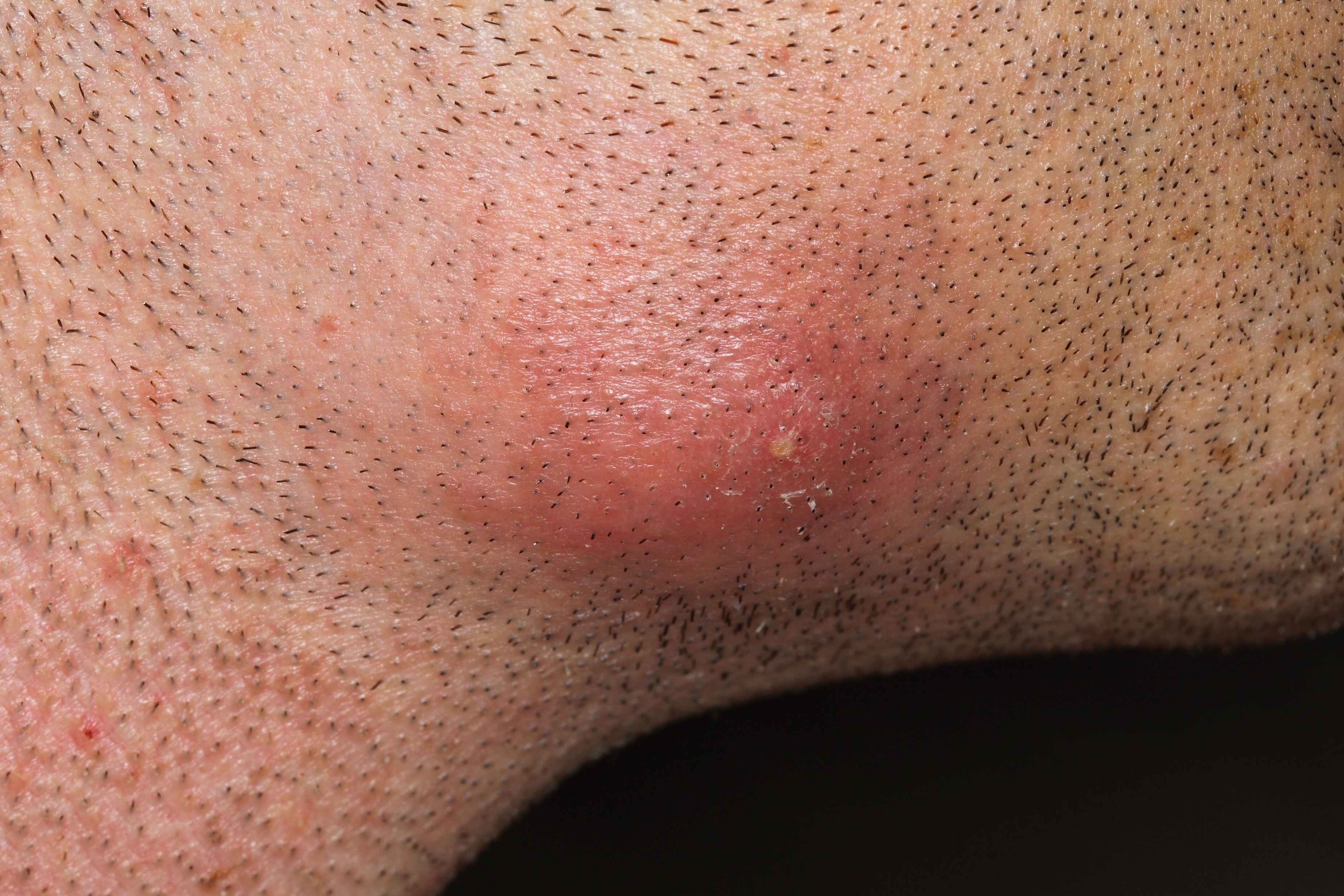Boils are painful skin lesions that can pop up unexpectedly, causing discomfort and concern. These pus-filled pockets are a common nuisance, but their recurring appearance might leave you wondering: What Is Your Body Lacking When You Get Boils? While boils are primarily caused by bacterial infection, understanding the underlying factors can be key to prevention and overall skin health.
What Exactly Are Boils?
Boils, also known as furuncles (single) or carbuncles (cluster), are essentially infections of hair follicles. Imagine a hair follicle as a small pocket in your skin from which hair grows. When bacteria, most commonly Staphylococcus aureus, enter this follicle, it can lead to an infection. This infection manifests as a red, inflamed lump that fills with pus, causing pain and tenderness. Boils can appear anywhere on the body but are more common in areas with hair, sweat, and friction, such as the face, neck, armpits, groin, inner thighs, and buttocks.
Symptoms of Boils: What to Look For
Recognizing a boil early can help with timely care. Common symptoms include:
- A painful, red lump: This is the initial sign, often tender to the touch.
- White or yellow center: As the infection progresses, the boil fills with pus and develops a visible center.
- Pain: The pain can range from mild to severe, often throbbing as the boil grows.
- General unwellness: In cases of larger boils or carbuncles, you might experience fever and a general feeling of being unwell, indicating a more systemic infection.
Unpacking the Causes: Beyond Bacteria
While Staphylococcus aureus bacteria are the direct cause of most boils, the question “what is your body lacking when you get boils?” prompts us to look deeper. It’s not always just about bacteria encountering your skin. Several factors can increase your susceptibility to boils, suggesting potential underlying imbalances or deficiencies within your body or lifestyle.
1. Weakened Immune System: Your Body’s Defense
A robust immune system is your body’s primary defense against infections. When your immune system is compromised, even common bacteria can more easily take hold and cause infections like boils. Factors that can weaken your immune system include:
- Poor Nutrition: Deficiencies in essential vitamins and minerals can impair immune function.
- Chronic Stress: Prolonged stress can suppress the immune system.
- Lack of Sleep: Insufficient sleep weakens the body’s defenses.
- Underlying Health Conditions: Conditions like diabetes, HIV/AIDS, and certain autoimmune diseases can significantly weaken the immune system.
2. Nutritional Deficiencies: Fueling Your Defenses
Specific nutritional deficiencies can impact skin health and immune function, potentially making you more prone to boils. While more research is needed to definitively link specific deficiencies directly to boils, certain nutrients play crucial roles in skin integrity and immune response:
- Zinc: Essential for wound healing, immune function, and skin health. Zinc deficiency can impair immune response and skin repair.
- Iron: Crucial for oxygen transport and immune cell function. Iron deficiency can lead to weakened immunity.
- Vitamin C: A powerful antioxidant and immune booster, vital for collagen production and wound healing.
- Vitamin D: Plays a role in immune regulation and skin health. Vitamin D deficiency is linked to increased susceptibility to infections.
- Vitamin A: Important for skin cell turnover and immune function.
It’s important to note that while these deficiencies could contribute to a higher risk of infection, they are rarely the sole cause of boils. Boils are primarily bacterial infections, and hygiene and exposure to bacteria are still major factors. However, ensuring adequate nutrition and addressing potential deficiencies can support a stronger immune system and better overall health.
3. Hygiene and Skin Health: The Barrier Breakdown
While not a “lack” within the body, poor hygiene and compromised skin integrity significantly increase the risk of boils:
- Poor Hygiene: Not washing hands regularly, especially after potential exposure to bacteria, can increase the risk of introducing bacteria to hair follicles.
- Skin Trauma: Cuts, scrapes, insect bites, or even friction from tight clothing can break the skin’s protective barrier, allowing bacteria to enter hair follicles more easily.
- Shaving and Ingrown Hairs: Shaving can sometimes cause micro-tears in the skin or lead to ingrown hairs, creating entry points for bacteria.
When to Seek Medical Advice
Small boils can often be managed at home with warm compresses and good hygiene. However, it’s important to consult a doctor if you experience any of the following:
- Large Boils or Carbuncles: These may require drainage or antibiotics.
- Boils on the Face: Boils in this area can be more serious due to the risk of spreading infection.
- Boils Accompanied by Fever or Feeling Unwell: This indicates a potentially more serious infection.
- Recurrent Boils: Frequent boils may signal an underlying health issue or immune deficiency that needs to be addressed.
- Boils That Don’t Improve: If a boil doesn’t heal within two weeks, seek medical advice.
Treating and Preventing Boils: A Holistic Approach
Treating boils typically involves keeping the area clean, applying warm compresses to encourage drainage, and sometimes antibiotics for larger or more severe infections. Prevention focuses on:
- Good Hygiene: Regular hand washing, showering, and keeping skin clean.
- Proper Wound Care: Cleaning and covering any cuts or scrapes promptly.
- Avoiding Sharing Personal Items: Don’t share towels, razors, or other personal items.
- Boosting Immune Health: Maintain a balanced diet rich in vitamins and minerals, manage stress, get enough sleep, and address any underlying health conditions.
Conclusion: Listening to Your Body
While boils are usually caused by bacterial infections, recurrent boils or increased susceptibility can be a sign that your body might be lacking in certain areas, particularly immune strength and potentially key nutrients. By adopting a holistic approach that includes good hygiene, a healthy lifestyle, and addressing potential nutritional gaps, you can support your body’s natural defenses and reduce the likelihood of boils. If you are concerned about recurrent boils, consulting with a healthcare professional is always recommended to rule out any underlying health issues and receive personalized advice.
